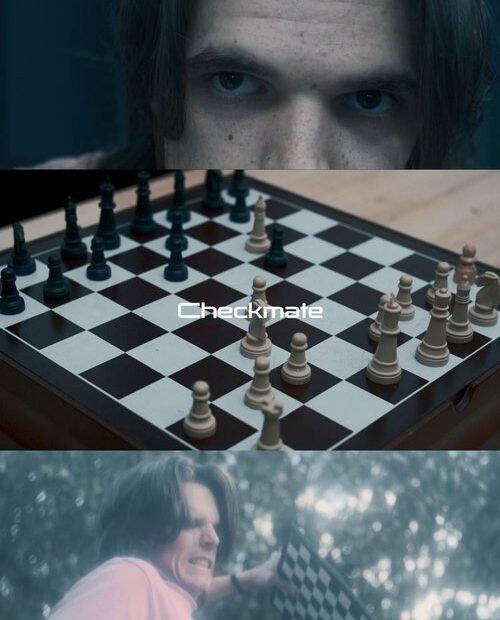Checkmate: A Philosophical Game of Wits and Whimsy
Picture this: a serene chessboard, two players poised like statues, and the air thick with tension. Our protagonist, who we shall affectionately refer to as “The Player,” finds himself in a battle of wits against none other than “The Master.” Now, you might think this is just your typical chess showdown, but oh, dear reader, prepare for a twist that even the most seasoned grandmasters would not see coming!
As the game unfolds, The Player, a man with more ambition than sense, quickly realizes that he’s not just playing against The Master’s formidable intellect but also against the very fabric of existence itself. Yes, folks, it’s not just a game of chess; it’s a metaphor for life, the universe, and everything! Who knew a mere 64 squares could hold such existential weight?
Each move is laden with philosophical implications. The Player ponders the nature of free will while contemplating whether to move his knight or let it rot in its current position. Meanwhile, The Master, exuding an aura of calm, seems to know every move before it’s even made. It’s as if he’s been sipping on the elixir of eternal wisdom while The Player is stuck with a lukewarm cup of regret.
In a moment of desperation, The Player attempts to outsmart The Master with a cunning strategy involving a sacrifice. “Take my bishop!” he shouts, thinking this will lead to some grand revelation. Instead, The Master just smiles knowingly and says, “You’ve just lost your bishop; are you ready to face the consequences of your decisions?” Ouch! Talk about a philosophical gut punch!
As the game progresses, The Player spirals down a rabbit hole of self-doubt and existential dread. He starts questioning everything: Is he merely a pawn in someone else’s game? Is life just a series of calculated moves leading to inevitable checkmate? These are the questions that would make Socrates proud. But just when you think The Player is about to have an epiphany, he trips over his own thoughts and loses a rook. Classic!
Finally, in a climactic showdown that rivals the best of Shakespearean dramas, The Player makes a bold move, only to realize he’s played himself into a corner. The Master, with a twinkle in his eye, calmly announces, “Checkmate.” The Player, stunned, realizes that he’s not just lost a game, but perhaps a piece of his very soul.
In the end, as The Player walks away, he reflects on the game, pondering the nature of victory and defeat. Was the real checkmate a loss on the board, or the revelation that life is just one giant chess game where we all think we’re the kings and queens, but really, we’re just pawns? Philosophical? Absolutely. Hilarious? You bet! So, the next time you sit down for a game of chess, remember: it’s not just a game; it’s a reflection of your deepest insecurities and questionable life choices.
In conclusion, Checkmate isn’t just about chess; it’s a witty exploration of the human condition. With its blend of humor and philosophy, it leaves us pondering whether we’re playing the game or if the game is playing us. And that, my friends, is a checkmate we all can relate to!
